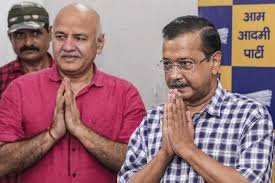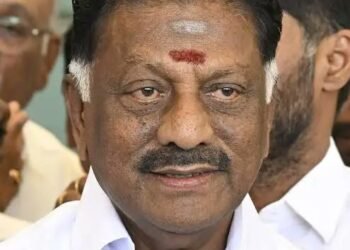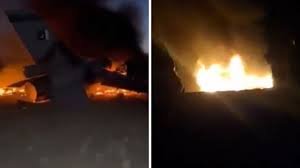As Manipur grapples with its ongoing ethnic violence, an open letter urges Chief Minister N. Biren Singh to address the concerns of both the Meitei and Kuki communities. In this candid appeal, the Editor of The Power Corridors, Navin Upadhyay, highlights the urgency of dialogue, understanding, and a balanced approach in tackling the region’s crisis.
Dear Chief Minister Biren Singh Ji,
I am writing this open letter to you as a concerned citizen and a long-serving journalist, aware of the delicate socio-political dynamics currently affecting Manipur. The contemptuous way you dismissed the Hill Tribal Council’s (HTC) directive to ban the Meitei Mayek script in schools ( By the way, I don’t support the HTC demand, either) have left me deeply unsettled. I respect the constitutional power of the state government, but your comments about the state being run solely by the government, “not by any group we don’t recognise,” fail to capture the broader, painful reality we face in Manipur today.
On the surface, your statement appears to be a declaration of the state’s authority. But, Mr. Singh, can you truly say that Manipur is being governed by the state when militant groups—both Meities and Kukis– and ethnic divisions are deeply entrenched across the region? Can you deny that there are situations where the state’s authority is not just questioned but visibly absent?
ALSO READ: Kuki-zos ban Meitie Mayek in schools in Manipur
If the state were truly in control, would we witness innocent girls being paraded naked on the streets? Would children be burned alive in ambulances with their mothers? Would we see dead bodies floating in the river? These are not just tragic events; they are stark symbols of the state’s failure to uphold the rule of law. Both the Kuki-Zo and Meitei communities are paying a heavy price for the failure of your government, and my heart goes out to both of them.
The statement came in response to questions about the Hill Tribal Council’s (HTC) education department’s recent order to remove #Manipuri/#Meitei Mayek subject from school syllabi in #Moreh town, starting from the 2025-2026 academic year. https://t.co/Za1LuYhPsD
— India Today NE (@IndiaTodayNE) January 21, 2025
It is abundantly clear, Mr. Singh, that the gravity of the current situation is not being addressed. Your dismissive and off-the-cuff remarks only worsen the situation, creating further distrust among communities already reeling from violence and loss.
I would repeat that as a law-abiding citizen, I generally align with your assertion that the state should be governed by the government, but I also believe that such a stance requires sensitivity in moments of crisis. The Meitei and Kuki communities, both of whom have suffered deeply, cannot be dismissed. When you say, “we don’t care about them” or “so many organizations… blah, blah, I don’t know them,” you ridicule people and their sentiments, fuel the fire of division, and make meaningful dialogue impossible.
How do you expect these communities to trust you, Mr. Singh, when you refuse to engage with their concerns, wrong or right, in a way that shows respect for their cultural identities and painful histories.
You claim to disregard the Hill Tribal Council, but are you so out of touch with the region’s realities that you fail to recognize their influence? Just recently, the Assam Rifles agreed to vacate their posts based on the directive of the Tangkhul Naga civil society groups in Kamjong district. The Superintendent of Police in Kamjong was involved in the negotiations, which means your state government was certainly part of this decision. If your government can heed the demands of Naga civil society groups, why is the voice of the HTC treated with contempt?
Allow me to remind you of the historical context that shapes the Hill Tribal Council’s role. The Maharaja of Manipur, in 1939, agreed with the British to exclude the hill areas from his direct control. Since the 1960s, there has been an ongoing demand for the separate administration of the hill areas. The Manipur (Hill Areas) District Council Act of 1971, which passed while Manipur was still a Union Territory, established the legal framework for this demand. This was a significant step toward providing self-governance for the hill people, protecting their cultural identity, and granting them the right to manage their resources.
Instead of ridiculing your own people by calling them “monkeys,” Mr. Singh, it would be far more constructive to engage with them. Listen to their fears and insecurities after years of violence and loss. Rather than mocking organizations like the HTC, you could initiate a dialogue to address their concerns in a way that fosters peace, cooperation, and mutual understanding. Ridiculing only deepens wounds and escalates the situation.
The HTC’s directive to remove the Meitei Mayek script from the school syllabi in Moreh for the 2025-2026 academic year—something I see as a provocative ina time like this– is a response to the deep ethnic tensions between the Meitei majority and the Kuki-Zo minority. The script, which was revived by the Meitei community and officially adopted by your government in 2021, has become a symbol of cultural identity. However, for the Kuki-Zo community, its mandatory inclusion in school curricula is viewed as a threat to their own linguistic and cultural heritage.
The HTC’s decision to replace Meitei Mayek with languages like Hindi, English, Mizo, Thadou, Hmar, Zou, Maring, Anal, Vaiphei, Paite, and Gangte is not merely political; it is a direct response to the cultural insecurity felt by many in the Kuki-Zo community.
In times like these, Mr. Singh, it is critical for leaders to not only uphold the state government’s authority but also to recognize the fears and concerns of all communities. Dismissing those concerns as irrelevant only exacerbates the divide, leaving Manipur further unstable and fragmented.
Please do not forget that both the Meitei and Kuki-Zo communities are suffering from this senseless bloodshed, and the state is paying the price too. The loss of over 250 lives and the displacement of nearly 60,000 people is a crisis that demands a serious response. Before addressing sensitive issues in such a cavalier manner, I urge you to pause, reflect, and think of the people who have lost so much.
Yours sincerely,
Navin Upadhyay
Editor, The Power Corridors














